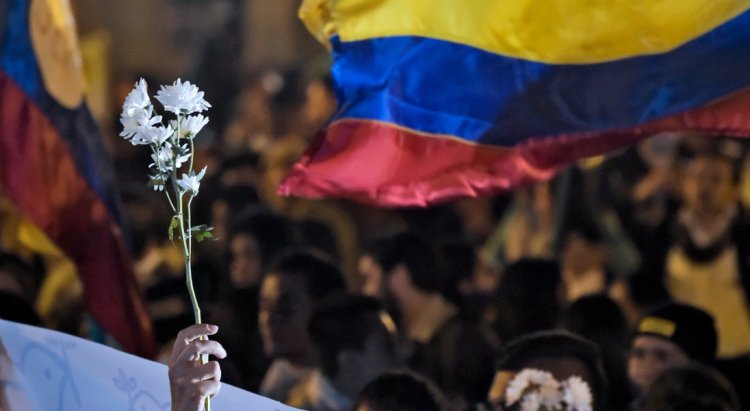Indigenous Peoples at critical juncture as Colombia grapples with decades of armed conflict
The Special Rapporteur highlighted the invaluable contributions of Indigenous Peoples to the country’s cultural tapestry and environmental conservation, and emphasised their central role in combating climate change.

Colombia’s Indigenous Peoples are at a critical juncture as the country grapples with decades of armed conflict, a UN expert said today.
“It is extremely urgent for Colombia to address historic grievances, especially as the country embarks on new negotiations aimed at achieving ‘total peace’,” said Francisco Calí Tzay, UN Special Rapporteur on the rights of Indigenous Peoples, in a statement at the end of a 10-day visit to the country.
Calí Tzay acknowledged positive legal advances and Government intentions to strengthen Indigenous Peoples’ rights, but deplored persistent challenges that threaten the very existence of many of them, putting them at imminent risk of physical and cultural extermination.
“The absence of capable state institutions in the territories of Indigenous Peoples, especially in rural areas and far from the Colombian capital, has allowed the progressive and tragic deterioration of their rights for generations,” the expert said.
The Special Rapporteur expressed alarm at the plight of Indigenous women and children, who face multiple forms of discrimination within and outside their communities. “The testimonies of forced recruitment and displacement, suicides, sexual violence and discrimination in access to health, education and food are devastating,” he said.
Calí Tzay spoke to Indigenous women who have spent more than a decade searching for their daughters, sons and partners who disappeared during the armed conflict, and who have not received an adequate response from authorities. One of them said: “We have always been here, but they treat us as invisible.”
The expert urged the Government to implement the recommendations of his predecessors, who visited Colombia in 2004 and 2009 and called for concrete measures to address the historical marginalisation of Indigenous Peoples.
“The report I will present to the Human Rights Council in September 2024 will include additional recommendations to settle the historical debt owed by the State towards Indigenous Peoples in Colombia,” he said.
The Special Rapporteur highlighted the invaluable contributions of Indigenous Peoples to the country’s cultural tapestry and environmental conservation, and emphasised their central role in combating climate change.
“True progress depends on genuine recognition and respect for the rights of Indigenous Peoples, starting with self-government, self-determination, land, territories and resources” Calí Tzay said. “Indigenous knowledge and ancestral wisdom are essential to achieving Colombia’s aspirations for lasting and true Total Peace, as well as environmental protection.”
- READ MORE ON:
- Colombia
- Francisco Calí Tzay










